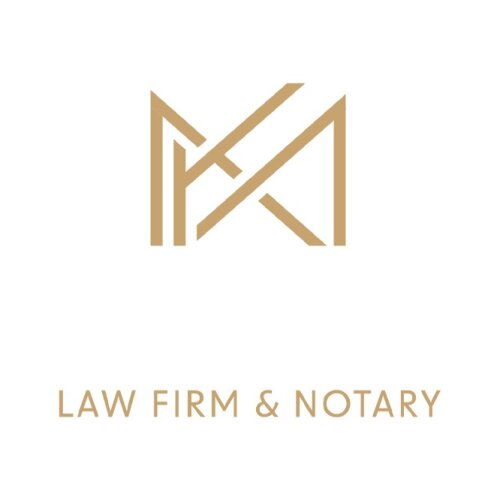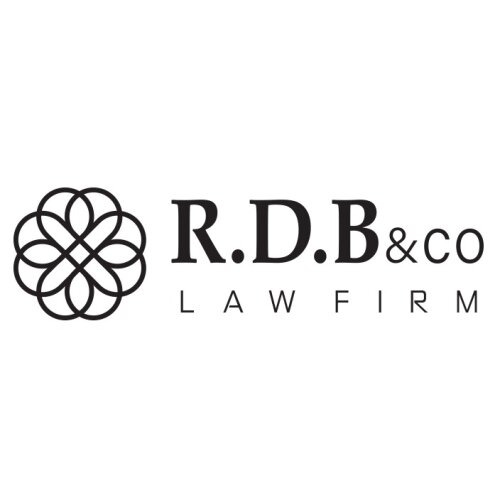Best Landlord & Tenant Lawyers in Petaẖ Tiqwa
Share your needs with us, get contacted by law firms.
Free. Takes 2 min.
Free Guide to Hiring a Real Estate Lawyer
List of the best lawyers in Petaẖ Tiqwa, Israel
About Landlord & Tenant Law in Petaẖ Tiqwa, Israel
Landlord and tenant laws in Petaẖ Tiqwa, Israel, are part of the broader Israeli legal framework designed to regulate the relationship between property owners and tenants. These regulations cover various aspects, including rent agreements, tenant rights, landlord responsibilities, and dispute resolution. The aim is to ensure fair and equitable treatment for both parties, promoting a balanced and just rental market.
Why You May Need a Lawyer
There are several common scenarios where you might require legal assistance in landlord and tenant matters:
- Lease Agreement Disputes: Legal help can be crucial when there are disagreements over lease terms or when terms are unclear or contested.
- Eviction Processes: Eviction involves legal procedures that must be followed precisely to avoid legal repercussions.
- Rent Control and Increases: Understanding your rights regarding rent increases or issues related to rent control can require legal guidance.
- Property Maintenance and Repairs: Disputes about who is responsible for repairs and maintenance can benefit from legal intervention.
- Security Deposits: Disagreements over the return or use of security deposits often need legal mediation.
- Illegal or Unfair Practices: If a landlord or tenant is engaging in illegal or unfair practices, legal support can help resolve these issues.
Local Laws Overview
In Petaẖ Tiqwa, and Israel in general, several key laws and regulations govern the landlord-tenant relationship:
- Rental Law: The primary law regulating rentals is the Rental and Loan Law, 1971. It outlines the rights and obligations of landlords and tenants.
- Rent Control: Although not universally applied, certain areas may have rent control regulations that limit the amount a landlord can increase rent.
- Tenant's Security Deposit: Landlords can ask for a security deposit, but its use, return, and amount are regulated.
- Eviction Procedures: Evictions must follow a legal process, providing the tenant with the right to contest and seek due process.
- Subletting and Assignment: Contract terms usually dictate rules regarding subletting, and legal advice is often needed for these situations.
- Maintenance and Repairs: Landlords are typically responsible for major repairs, while tenants may have obligations for minor maintenance.
Frequently Asked Questions
1. What should be included in a rental agreement?
A rental agreement should include rental terms, rent amount, duration, landlord and tenant obligations, maintenance responsibilities, and clauses on the use of security deposits.
2. Can a landlord increase my rent at any time?
No, landlords must follow the terms outlined in the rental agreement and any applicable local rent control laws.
3. What are my rights if my landlord fails to make necessary repairs?
If your landlord fails to make necessary repairs, you may have the right to make the repairs and deduct the cost from your rent, or seek legal remedy through the court system.
4. How is a security deposit supposed to be handled?
A security deposit should be kept separately and can only be used for damages beyond normal wear and tear or unpaid rent. It should be returned at the end of the lease term, minus any permissible deductions.
5. Can a landlord evict me without notice?
No, eviction must follow legal procedures, including giving proper notice and potentially obtaining a court order, especially if the tenant contests the eviction.
6. Am I allowed to sublet my apartment?
Subletting is usually governed by the rental agreement. You typically need the landlord's permission, and it must comply with local laws.
7. What can I do if my landlord is entering my property without permission?
Tenants have the right to privacy. If a landlord enters without permission, you can request them to stop and, if necessary, seek legal action for a breach of privacy and trespassing.
8. What happens if I want to terminate my lease early?
Early termination should be addressed in the rental agreement. You may be required to provide notice or find a replacement tenant. Legal advice can assist in these situations.
9. Are landlords responsible for pest control?
Landlords are generally responsible for ensuring the property is habitable, which includes pest control, but lease terms may specify responsibilities differently.
10. What are my options if my landlord sells the property?
Typically, the lease agreement remains valid even if the property is sold. The new owner must honor the existing rental terms.
Additional Resources
For more information or assistance, you can reach out to the following resources:
- Ministry of Justice: Provides guidelines and resources about landlord and tenant laws.
- Local Municipality (Petaẖ Tiqwa Municipality): Can offer local ordinances and additional support.
- Legal Aid: Free or subsidized legal services available to eligible individuals.
- Tenant and Landlord Associations: Offer support and advocacy for both tenants and landlords.
Next Steps
If you need legal assistance in landlord and tenant matters, consider the following steps:
- Research: Gather information on your rights and obligations.
- Consult a Lawyer: Seek professional legal advice to understand your options and guide you through complex issues.
- Document Everything: Keep records of all communications, agreements, and any disputes.
- Reach Out to Resources: Utilize the additional resources provided for guidance and support.
- Follow Legal Procedures: Ensure all actions are in line with local laws to protect your rights.
Taking these steps can help you navigate landlord-tenant issues more effectively and protect your interests.
Lawzana helps you find the best lawyers and law firms in Petaẖ Tiqwa through a curated and pre-screened list of qualified legal professionals. Our platform offers rankings and detailed profiles of attorneys and law firms, allowing you to compare based on practice areas, including Landlord & Tenant, experience, and client feedback.
Each profile includes a description of the firm's areas of practice, client reviews, team members and partners, year of establishment, spoken languages, office locations, contact information, social media presence, and any published articles or resources. Most firms on our platform speak English and are experienced in both local and international legal matters.
Get a quote from top-rated law firms in Petaẖ Tiqwa, Israel — quickly, securely, and without unnecessary hassle.
Disclaimer:
The information provided on this page is for general informational purposes only and does not constitute legal advice. While we strive to ensure the accuracy and relevance of the content, legal information may change over time, and interpretations of the law can vary. You should always consult with a qualified legal professional for advice specific to your situation.
We disclaim all liability for actions taken or not taken based on the content of this page. If you believe any information is incorrect or outdated, please contact us, and we will review and update it where appropriate.












